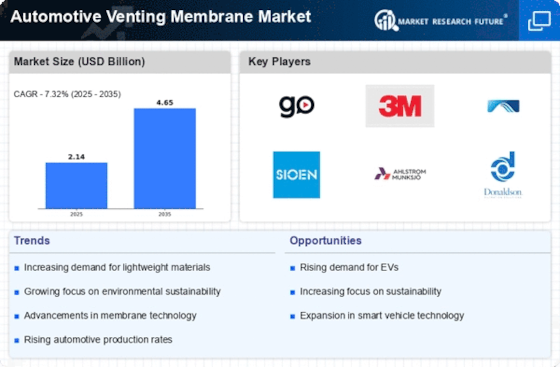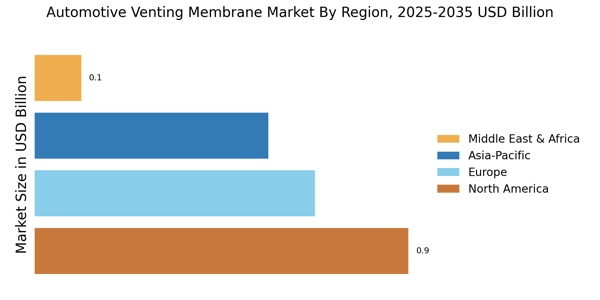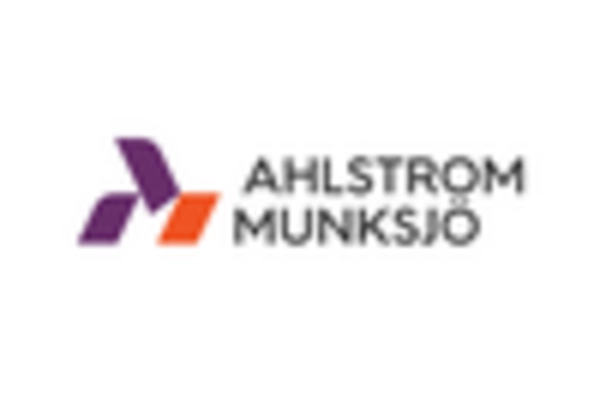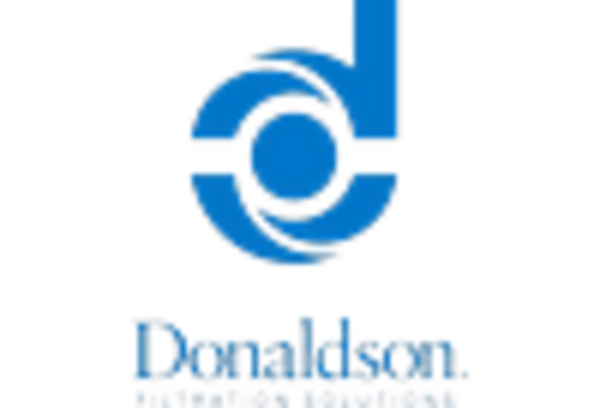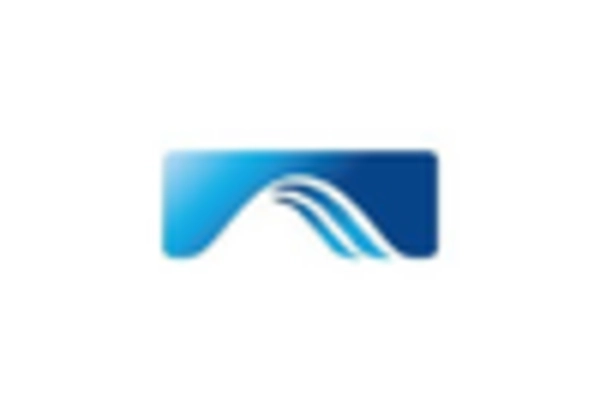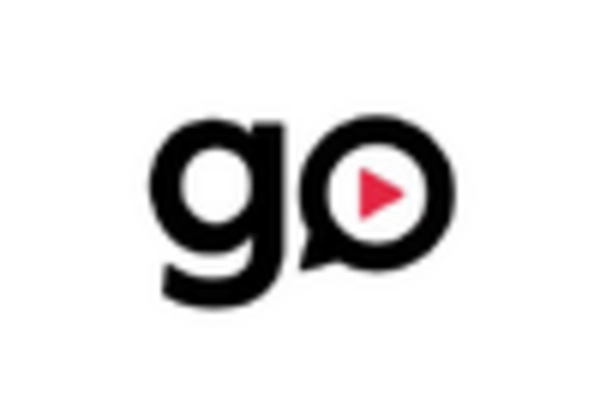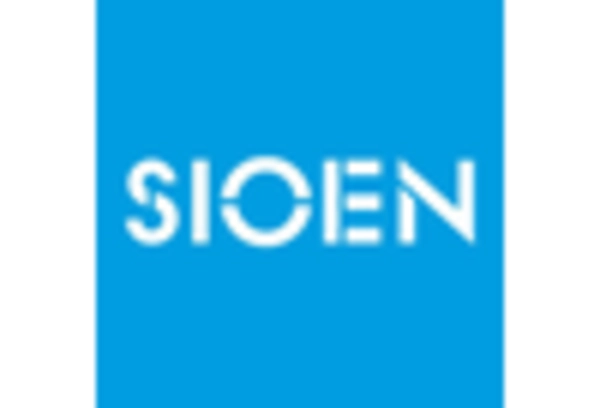Regulatory Compliance
Regulatory compliance is a critical driver for the Automotive Venting Membrane Market. Governments worldwide are implementing stringent regulations regarding vehicle emissions and safety standards, necessitating the use of advanced materials that can meet these requirements. Automotive venting membranes are essential in ensuring that vehicles comply with these regulations by providing effective moisture control and preventing the ingress of contaminants. As regulations become more rigorous, manufacturers are compelled to invest in high-quality venting solutions, which is likely to propel market growth. The industry is projected to see a steady increase in demand, with a growth rate of approximately 4% per year as companies prioritize compliance and seek innovative solutions to meet regulatory challenges.
Electric Vehicle Adoption
The rise of electric vehicles (EVs) is significantly impacting the Automotive Venting Membrane Market. As the automotive landscape shifts towards electrification, the need for effective venting solutions becomes paramount. EVs require specialized venting membranes to manage battery heat and moisture, ensuring optimal performance and safety. This trend is expected to drive market growth, with estimates suggesting a potential increase in demand for automotive venting membranes by 7% annually as more manufacturers incorporate these technologies into their EV designs. The automotive industry is adapting to this shift, creating opportunities for suppliers to develop tailored solutions that meet the unique requirements of electric vehicles, thereby enhancing their market presence.
Technological Innovations
Technological advancements play a pivotal role in shaping the Automotive Venting Membrane Market. Innovations in material science and manufacturing processes have led to the development of advanced venting membranes that offer superior performance characteristics. These membranes are designed to provide effective moisture management and air permeability, which are crucial for enhancing vehicle longevity and performance. The integration of smart technologies, such as sensors and IoT capabilities, is also emerging, allowing for real-time monitoring of membrane performance. As a result, the market is expected to expand, with a projected growth rate of around 6% annually through 2025. This growth is indicative of the industry's commitment to leveraging technology to improve product offerings and meet evolving consumer demands.
Sustainability Initiatives
The Automotive Venting Membrane Market is increasingly influenced by sustainability initiatives. As manufacturers strive to reduce their environmental footprint, the demand for eco-friendly materials and processes has surged. This shift is evident in the automotive sector, where companies are adopting sustainable practices to meet regulatory requirements and consumer expectations. The market for automotive venting membranes is projected to grow as these materials contribute to the overall sustainability of vehicles. In 2025, the market is expected to witness a compound annual growth rate of approximately 5%, driven by the need for lightweight and durable materials that enhance vehicle efficiency while minimizing environmental impact. This trend indicates a significant opportunity for manufacturers to innovate and develop products that align with sustainability goals.
Consumer Awareness and Demand
Consumer awareness regarding vehicle performance and durability is increasingly influencing the Automotive Venting Membrane Market. As consumers become more informed about the benefits of advanced materials, there is a growing demand for automotive venting membranes that enhance vehicle reliability and longevity. This heightened awareness is prompting manufacturers to focus on developing high-performance venting solutions that cater to consumer preferences. Market data indicates that the demand for such products is expected to rise by 5% annually through 2025, as consumers prioritize quality and performance in their purchasing decisions. This trend underscores the importance of aligning product development with consumer expectations, thereby creating opportunities for growth within the automotive venting membrane sector.


